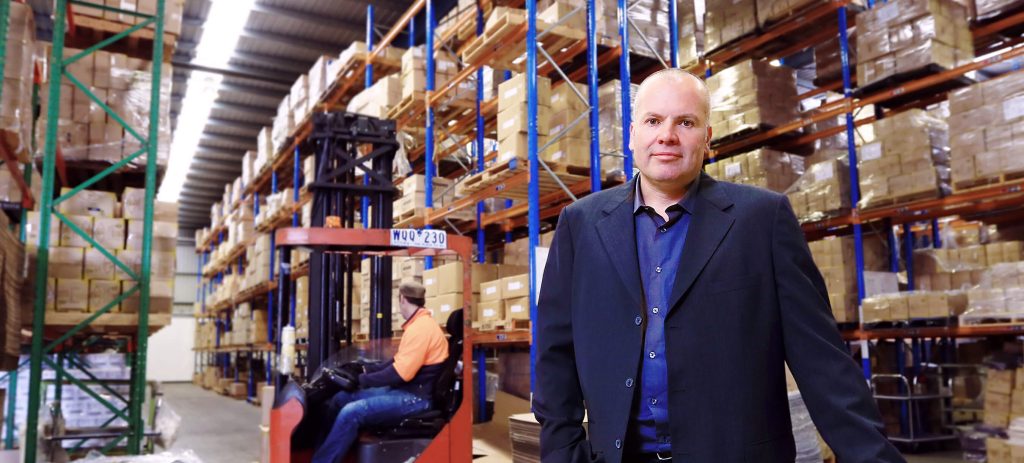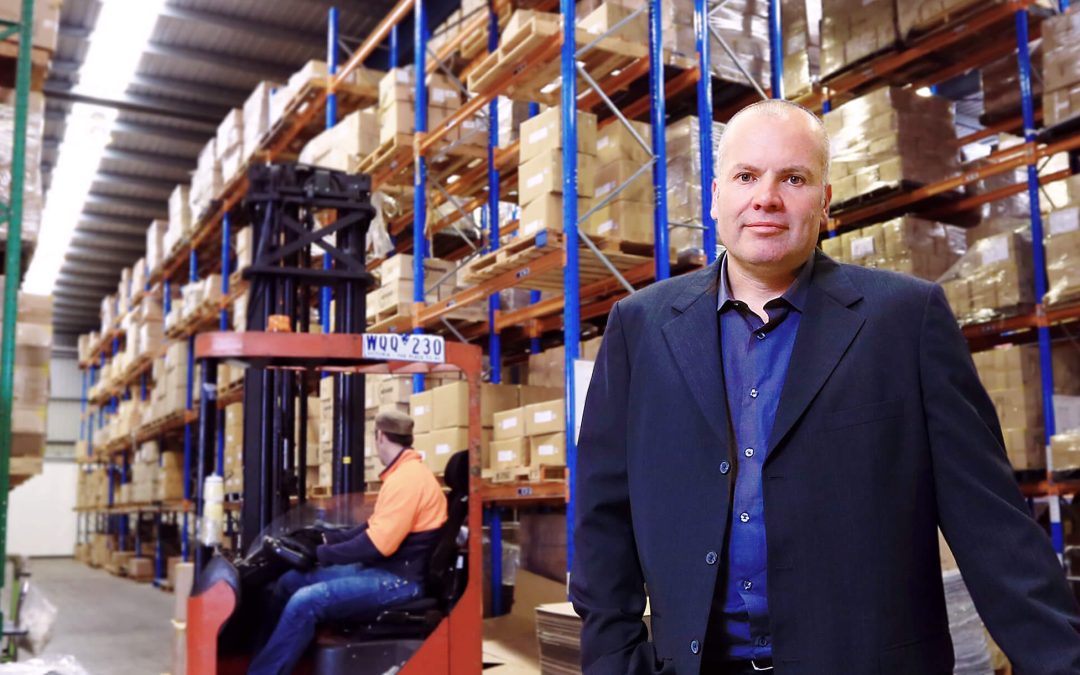BRI GETS READY TO TAKE ON THE US

BR International (BRI) is an Australian company that is rapidly developing a reputation as a leading provider of global supply chain management solutions. The company provides its end-to-end supply chain solutions to a diverse range of organisations, from small businesses to large enterprises.
Established almost 40 years ago, BRI took on a new lease of live in the early 2000s when the company was acquired by current directors, Aaron Poole and Michael Bourne. Still in their thirties, the pair were enthusiastic, ambitious and had an eager eye for opportunity. Both were familiar with BRI and believed there was tremendous potential to grow the business.
In the nine years since, Poole and Bourne have worked constantly to achieve their vision. They have increased BRI’s scope of activity within Australia, embarked on a joint venture within Asia, and expanded their geographic coverage with the establishment of offices in New Zealand, Hong Kong, Vietnam, Holland and China. To keep pace with customer demand, the number of staff has jumped from 14 to 100.
And now, in 2013, BRI is looking for ways to gain a foothold in the lucrative North and South American markets. “Our aspiration is to continue to grow at the rate we’ve been growing,” Poole acknowledges.
LAYING THE GROUNDWORK
Earlier this year, Poole was considering the systems and processes that BRI would need to support its next phase of growth when he realised that something wasn’t quite right.
“The warehouse is a very important part of our value added service. Orders arrive on a daily basis. Warehouse staff handle goods, forklift drivers shift pallets around the floor and we have a need to manage the outer and inner carton process. The need for a WMS [warehouse management system] tool to keep track of what is going on every single minute of the day is essential to our success. We found that our current system was not moving with the needs of our customers,” he explains.
“We had an in-house developed system that wasn’t able to grow with the business and clearly our competitiveness was suffering. In addition to this, clients’ needs and desires change on a regular basis so again our current system was not suitable.”
The company needed to implement the latest technologies – such as radio frequency [RF] and hand-held scanners, voice technology, advanced picking and packing capabilities – if it wanted to stay ahead of the competition and ensure higher levels of service to customers.
To find the right warehouse solution for BRI’s future, Poole prepared an RFP [request for proposal], outlining the company’s expectations. High on his list of essentials were ease of use and the ability to streamline functionality within the warehouse. The software had to be flexible, have room to grow, and be capable of integration with customer information systems. It had to offer value for money and ideally, Poole wanted a solution that was Australian owned, developed by a vendor committed to the logistics industry and who would be equally committed to BRI’s business.
At a technical level, Poole’s requirements included system to system integration, bar coding, complete back-office integration, real-time inventory updates, an RF capability with handheld technology extension, strong report management, advanced picking and labeling technology and inventory management through to allocation.
Critically, given BRI’s international activities, Poole also wanted the assurance of a system that had been successfully deployed overseas.
“In the end, we selected Infocomm Software. Their system met our immediate RFQ so there was no need to add time for further customisation, and clearly, the company has done some research because they show a great understanding of what a third party logistics provider needs.”
Aaron Poole, Director
RISING COSTS DICTATE A FAST DEPLOYMENT
Ever ambitious, Poole set a four-to-eight week deadline for deployment of the system at BRI’s Australian headquarters, a warehouse located in Sydney.
“It was an extremely aggressive target but we needed to get the system in,” Poole admits. “The existing system was not doing what was needed and labour costs were increasing as a result. Infocomm saw our need, accepted the timing and were prepared to do whatever was required.”
As soon as the Sydney warehouse was up and running, Poole began planning further roll-outs for Melbourne, Brisbane and Perth. These are now under way and are expected to be completed before the end of the year.

ROI WITHIN TWO MONTHS
Although only one warehouse is currently operating on Infocomm, Poole confirms the company is already receiving a return on the software investment. Automation has eliminated most manual practices in the warehouse, including the picking and receiving functions.
“This has allowed us to take between 100 and 120 hours of labour per week out of the Sydney operation,” Poole notes.
Order accuracy has improved and impressively, Poole says there has been a five per cent improvement in key performance indicators (KPIs) such as orders that are “Delivered in full on time” (DIFOT). Operating and inventory holding costs have been reduced. Productivity is on the rise, and management finally has full order visibility through to customer integration.
“The excitement for us is that we’re still in the birth stages. BRI has warehouses and offices all around the world so once we finish in Australia, our next step is to roll the system out globally, to warehouses in Shanghai, Shenzhen, Ho Chi Minh, New Delhi, Rotterdam and more. We’ve already told Infocomm that we want our China warehouses on line in early 2014 and we expect to have all sites completed by end of next year,” Poole concludes.
By then however, given Bourne and Poole’s determination to keep growing, BRI may need to start planning for addition deployments, only this time in the Americas.

